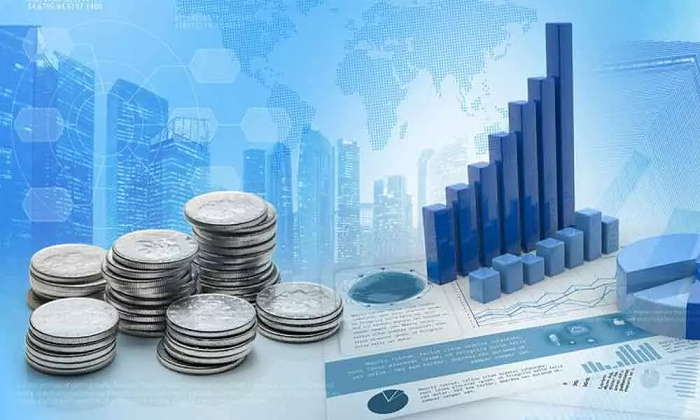The 7th of a month is traditionally the last date by which Indian businessmen pay employee salaries of the previous month. May 7, 2020, must have been an agonizing day of reckoning for lakhs of business employers, stuck with zero cash inflows for the last 45 days, and millions of their employees.
Some employers might have paid full or part salaries, many others may have decreed leave without pay for their employees, yet others would simply have shrugged their shoulders and let the cards fall as they would. A duo of small business owners of Noida declared on TV on 6 May that they simply wouldn’t pay salaries to their workers.
To the query that such an act could invite legal punishment, they replied simply, “If we are sent to jail, so be it. We just don’t have the money to pay salaries to our employees, some of whom have been with us for decades, and whom we consider almost family.” May 7, 2020, also marks 45 days of the start of the national lockdown. It’s clear that Prime Minister Narendra Modi’s decisive lockdown gave the country critical time to shore up and expand public health infrastructure to deal with the Covid-19 crisis.
It’s an open-ended crisis, and nobody knows where it will head, and for how long it will deal its hand of death and dread. Almost to the last person, Indians admirably withstood the lockdown with commendable discipline, trusting that their government, on its part, would act to mitigate their hardship, and act to ensure their survival and livelihood. This trust is now beginning to shatter because the government is perceived to have done very little to provide economic lifelines to enable wealth producing business engines to keep running.
Worse, people don’t know what the government might do, or when. Or, if it will do anything at all. Why is this happening? Why is the great communicator Modi stone-silent? Why are his cabinet colleagues invisible instead of being seen here, there and everywhere, at least feigning action, if nothing else? Why is nobody talking to the revered janata janardan? The Covid-protecting facemask seems to have become a mouth-shut device.
Several possibilities suggest themselves. Each one is disquieting.
1. The government simply doesn’t know what to do. This is an unlikely supposition for the government that boasts of many fine, articulate, young economists. It has also received gratis advice from scores of distinguished economists, former central bankers and what not, and it has available international models and practises to draw upon.
2. The government’s economic team may know what to do, but Modi doesn’t understand economics, and so he can’t make up his mind amidst differing advice. This is the argument most clearly articulated by the irrepressible and clear-speaking BJP leader, Dr. Subramanian Swamy. Added to this is the possibility that the Prime Minister is fundamentally conflicted about his economic ideology, caught in a false choice between welfare economics and free market dispensation.
3. The government knows what to do but is waiting for the right time to act. This doesn’t cut any ice. If the government has a clear roadmap in mind, nothing stops it from sharing it with the people, along with a clear time table.
That, by itself, would act as a huge confidence booster. The additional fact that no form of salary support for MSMEs could be announced even by May 7, the second salary day post the Covid-19 attack, would blow holes in the deliberate action theory. In the worst-case scenario that the government believes it doesn’t have money to do anything much, it’s better for it to come clean rather than let confusion fog everything over.
It would appear that the government is caught in a perfect freeze wrought by a mix of over-centralized decision making, economic policy confusion, and maybe a hint of panic now that it’s clear that Covid-19 is going to be a longer-running war that could inflict significant human and economic casualties, and thereby a considerable political cost.
In the process, the government has abdicated its duty to keep up the morale of the people during a crisis. The government should be seen to be taking action, being in control, imparting dynamism to the war against Covid-19. The Indian Army knows that the jawans pitch themselves into death situations when they see their leaders leading them there from the front. With the notable exception of an articulate, optimistic Nitin Gadkari, the other ministers heading economic ministries have become invisible.
In fact, the two most visible faces of the government during this time are both bureaucrats, Shaktikanta Das at the Reserve Bank of India and Lav Agarwal, a Joint Secretary in the Ministry of Health and Family Welfare. Whatever magic bullets, or rabbits, Modi may eventually pull out of his jacket pocket, he’s already begun losing public support and, worse, public trust. And public trust is the intangible asset which a leader can draw upon during a crisis.
When a sufficient number of people come to the conclusion that their jaan is in danger either way, whether due to Covid or due to bhookh, trust could swiftly turn to resignation—and mistrust. Telling people what is what is a key to keeping people together in difficult times. To keeping flagging spirits from flagging is an important aspect of political leadership. Modi, the supposedly great communicator, is failing the people of this country in not doing so; worse, in not having any message to deliver.




















